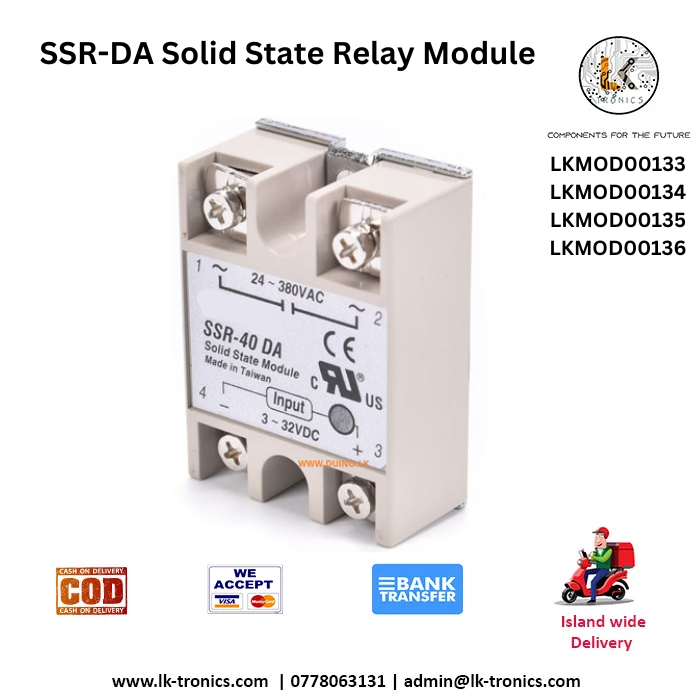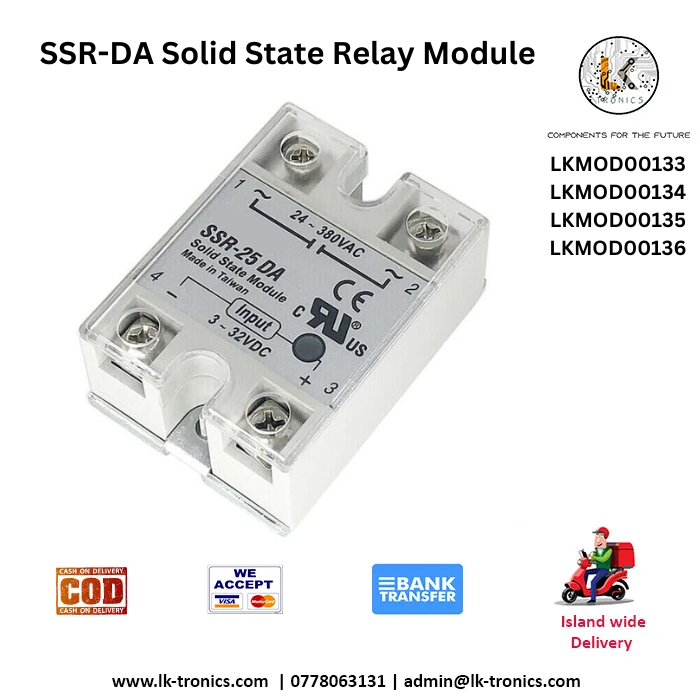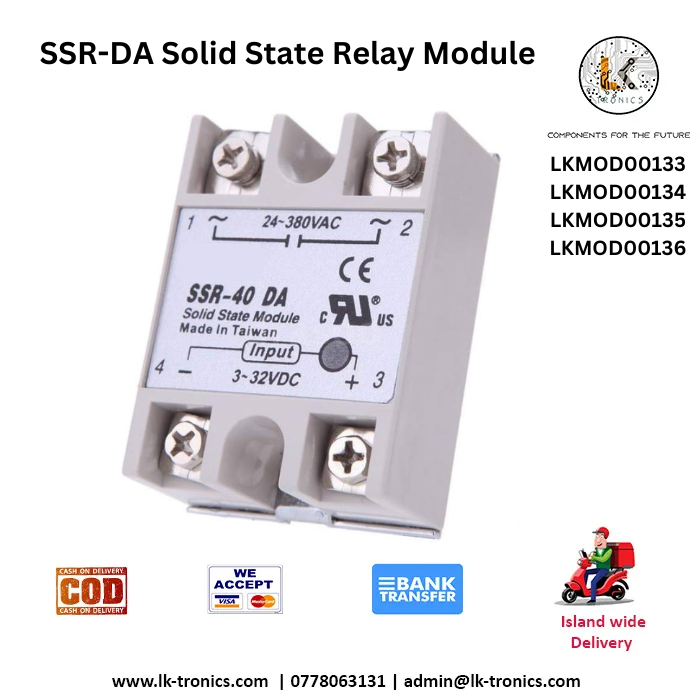SSR Solid State Relay Module
Specifications:
- Model: SSR-xxDA or SSR-xxAA (where
xxrefers to the rated load current, and “DA” or “AA” refers to the input-output control type: DA for DC-to-AC and AA for AC-to-AC). - Type:
- DC-to-AC (DA): Controls AC loads using a DC input control signal.
- AC-to-AC (AA): Controls AC loads using an AC input control signal.
Electrical Specifications:
- Load Voltage Range:
- Typically between 24V AC to 480V AC for AC control versions.
- DC load models, range between 5V DC to 200V DC.
- Load Current:
- 10A, 25A, 40A, 60A, 80A, and sometimes higher, depending on the module model and rating.
- Input Control Voltage:
- For DC-controlled versions, the typical input control voltage is 3-32V DC.
- For AC-controlled versions, the typical input control voltage is 90-280V AC.
- Input Control Current: Generally ranges between 5 to 30mA, depending on the model.
- Output Voltage (Load side):
- 24V AC to 480V AC for typical AC load models.
- The peak voltage can be much higher for specialized modules.
- On-State Voltage Drop: Typically, around 1.0-1.5V across the relay in the ON state, which can vary.
- Insulation Resistance:
- Common values are 1000MΩ or higher at 500V DC between input and output.
- Dielectric Strength:
- Typically, 2500V AC between input and output or between output terminals.
- Leakage Current (Off-State):
- Around < 2-10mA depending on the model and load capacity when in an OFF state.
- Turn-On Time: Around 10ms to 20ms (depending on zero-crossing detection circuitry).
- Turn-Off Time: Around 10ms to 20ms (depending on zero-crossing detection circuitry).
Mechanical Specifications:
- Dimensions: Varies by model, but typical sizes for single-phase SSR modules are around 60mm x 45mm x 30mm.
- Mounting Style:
- DIN rail mountable or panel mountable.
- Some SSRs may come with mounting holes.
- Cooling Requirements:
- Heatsinks are often required for high-current SSR modules.
- Some SSRs come with integrated heatsinks, while others may need external ones.
- LED Indicator:
- An LED indicator to show whether the relay is ON (triggered) or OFF.
Features:
- Zero-Crossing Detection: Ensures that switching occurs when the AC voltage crosses zero, minimizing electrical noise and wear.
- Random Turn-On: Available in certain versions where zero-crossing is not needed, providing quicker response time.
- Isolation: Electrical isolation between input and output circuits, typically through optocouplers, ensures safety and prevents back EMF from affecting the control circuit.
- Surge Protection: Some models come with built-in surge protection components such as MOVs (Metal Oxide Varistors) or TVS diodes for protection against voltage spikes.
Environmental Specifications:
- Operating Temperature:
- Typically between -30°C to 80°C (may vary depending on cooling, load, and current).
- Storage Temperature:
- Generally between -40°C to 100°C.
- Humidity:
- Operable at 40-85% relative humidity, non-condensing.
- Vibration/Shock Resistance: Some SSRs are designed to be resistant to mechanical vibrations and shocks.
| Current | SSR-25DA, SSR-40DA, SSR-60DA, SSR-100DA |
|---|
Based on 0 reviews
Be the first to review “SSR Solid State Relay Module”
You must be logged in to post a review.












There are no reviews yet.